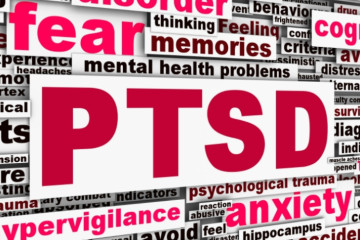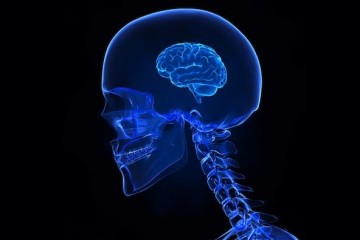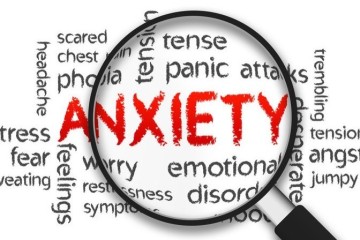The importance of health education

While health education has existed in one form or another for centuries (if not longer), it has only been within these modern times that its importance within our society has become clear. As technology, continues to evolve, so does the importance of health education become even more paramount. However, this can be a rather broad subject and it is, therefore a good idea to break the material down into several sub categories so that the importance of each can be better understood. Let us therefore, examine some of the primary considerations that are applied to modern health education as well as the problems which can be addressed.
Information
It should first be apparent that one of the main tenets which has always been espoused by health care education is the ability to pass on valuable education to others. The first role centres around providing the materials necessary for younger generations to make better decisions in regards to their own health and eventually, that of their families. By bridging this proverbial “gap”, the prevalence of illnesses and diseases should continue to decline into the future.
However, information can take on another form which is much more critical. An example can be seen in the educational responses which have been initiated since the recent Ebola outbreak in countries such as Sierra Leone and Liberia (1). By informing the populace in regards to lifestyle risks, real dangers and myths, this information helped to stop to spread of the deadly disease. So, it is clear that proper health education can save lives within real-time scenarios.
Prevention
The Ebola response closely mirrors the fact that the importance of health education also revolves around the prevention of certain conditions. A handful of the most common (and pervasive) can be:
The prevention of AIDS and other sexually transmitted diseases.
Proper hygiene in classrooms and social settings.
Avoiding bad habits such as smoking, drinking and drug use.
By presenting individuals with the proper materials, they are more likely to abstain from practices which can have negative outcomes within their lives. Not only will this lessen (and prevent) incidences of grave illnesses and medical conditions, but it will save the health care community a great deal of money in terms of treatment options.
Dissemination
We live in a global community that is continually defined by a blurring of geographic boundaries and massively advancing levels of communication. Through such progress, it has now been possible to provide an ever-increasing number of the population with access to at least basic educational resources. A quote by Owen Arthur seems to summarise, the importance of dissemination in this context:
In essence, this signifies the fact that allowing health education to be distributed and flourish within previously unconnected communities can enable a better quality of life to be enjoyed. Infant mortality rates will drop, better types care can be made available and the average lifespan of individuals could be dramatically altered. Much of this progress has been accomplished thanks to the ubiquitous presence of the Internet throughout many parts of the world.
Advancement
Health education goes far beyond the efficacious and proactive treatment of medical conditions. On the contrary, many of the advancements which society has witnessed during the past few decades is a direct result of an increased awareness. What exactly does this statement signify?
Let us remember that medical advancements are not simply a product of technological and pharmaceutical innovations alone. They are just as much a result of those involved in the fields of research, discovery and intervention. Without a strong educational base, such progress would not be possible. This is perhaps the primary reason why many modern treatments have arisen from the more, advanced regions of the world such as Europe and the United States. Of course, such an observation is often seen as being the direct result of greater access to education at early ages.
In turn, these levels of research will allow the field of medicine to advance at a breakneck pace. It should also be noted that better educational resources will naturally lead to a more robust understanding of the causes, symptoms, treatments and cures for many conditions which would have been considered fatal only fifty years in the past. So, it is clear to see that modern health education and discovery enjoy a symbiotic relationship.
Furthermore there has been some advancement in the field of nootropics and increasing cognitive medications usually administered to patients with Alzheimers and Dementia - now students are able to purchase the Narcolepsy medication known as Modafinil from stores giving students the ability to buy modalert and have it shipped to their dorm rooms.
Collaboration
Health education is also highly centred on the collaboration of two or more parties. Examples can be two doctors from disparate parts of the world discussing better ways to implement a programme in Africa to lessen the cases of HIV infection. However, such communications can also involve different companies working together for a common goal (such as was seen in the development of experimental Ebola vaccines during the past year).
The pivotal nature of collaboration within health education cannot be overstated. Not only can more efficient teaching methods be discovered and passed on, but the very direction of research could indeed change dramatically. In the simplest terms two (or more) heads are much better than one.
Future Concerns
Above all, many perceive the importance of health education to focus on future generations. When younger individuals are kept informed, they are much more likely to pass this information along to their children. Therefore, tackling endemic problems such as proper sanitation and the spread of communicable diseases can become much more of a reality. Along the same lines, avoiding behaviours which promote poor lifestyles such as smoking and obesity will have truly stunning effects upon the global population in years to come.
Health education is a field which is constantly changing and evolving. By appreciating its importance, an even greater focus can be placed upon new and more effective ways to avoid many ailments which have plagued mankind for hundreds of years. It will be very interesting to see what the future could hold.
References:
1. http://educationcluster.net/education-response-for-the-ebola-crisis/



